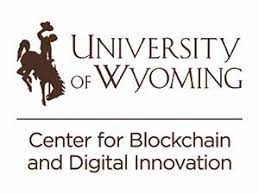Wyoming is a leader in this country when it comes to the use of blockchain and cryptocurrency technologies. The state has passed and is currently working on legislation that will set the stage for integrating these technologies into our everyday lives. Therefore, it only makes sense that the University of Wyoming (UW) would offer a track to minor in blockchain as part of its curriculum.
According to the Center for Blockchain and Digital Innovation Director, Steven Lupien, the program is so popular that UW had to raise the number of students allowed to take the intro class three times this Fall Semester.
With the rapid increase in the price of Bitcoin, it is no surprise there is a growing interest in learning about the horse that is pulling the cart: blockchain. This is the technology that all cryptocurrencies are built on, but it also has many other uses.
Tokenization is growing in popularity; creating non-fungible tokens or NFT’s is a way to monetize a name, image, or likeness. For example, the NCAA recently changed its policy to allow college athletes to earn money using their brand as NFT’s.
To use this technology properly, it needs to be understood and taught; that is where UW is stepping in.
“I’m a real believer in experiential learning, and I feel that way about education, particularly in this space,” Lupien said. “The best way to learn about tokenization is, let’s build some tokens.”
Lupien wants students to understand what the challenges are with every aspect of blockchain. For instance, when it comes to tokenization, how do you list a token, and what does commercial arrangement with tokens look like.
“Getting students to do these hands-on types of programs is the best way for them to learn,” he said.
Lupien is taking the program further and is working with a cryptocurrency mining company to get crypto-mining equipment donated to UW. This will allow students to unpack a machine from the box, connect it to a network and mine for crypto. A total immersion into how crypto-mining works will give students the real-world experience companies look for when hiring.
“There is a real shortage of engineers that have actually done this,” Lupien said. “I’ve talked to mining companies, and they are trying to recruit people that already know how to do this. Trying to train techs is hard to do, and these are good-paying, stable jobs.”
It is more than just mining; the program is staking a cryptocurrency called Ada, the digital currency for a blockchain network called Cardano. The Cardano network is different from the Bitcoin network because it uses a proof-of-stake model instead of a proof-of-work model. You commit your crypto assets to support a blockchain network and confirm transactions when you stake your cryptocurrency.
Bitcoins’ proof-of-work model requires mining devices that use computing power to solve mathematical equations. Staking is a more energy-efficient alternative to proof-of-work and can be a great way to earn passive income because of the high-interest rates offered.
Another part of the proof-of-stake model that is increasing in popularity, according to Lupien, are validators. These validators are node operators who store a copy of the blockchain and maintain its integrity by constantly computing the linkage from the first block to the last.
“Let’s create a tech program that exposes students to how all these different consensus mechanisms work, “Lupien said, “I want these young adults to really experience what this industry is like. I think we are doing some pretty cutting-edge stuff around that.”
Many universities have set up their programs to be just tech programs that teach students how to program different types of cryptocurrencies’. This is part of what UW’s blockchain center offers, but the focus is to look at every aspect of what blockchain can do.
“It’s about how you program blockchain systems that are unique,” Lupien said. “It’s what do you do with them? What are the use cases?”
There are many uses for blockchain technology; Walmart uses it to track their supply chain, and right here in Wyoming, Beefchain was developed for ranchers. Beefchain provides traceability of cattle and sheep and creates an end-to-end supply chain solution that will provide investment in feedlot and processing operations, allowing the rancher to develop long-term relationships with buyers worldwide. Lupien currently serves as the president of Beefchain, a trademark held by American Certified Brands, LLC.
“Every single business is going to be impacted by blockchain, whether it’s with smart contracts or new payment systems,” Lupien said. “To me, that’s what gets me out of bed in the morning.”
So, at UW, the faculty, staff and students are all excited about what the future holds for the blockchain industry and its utilization here in Wyoming. Using renewable energy to power crypto-mining equipment or developing a blockchain for the healthcare industry that secures people’s personal information as it is shared between practitioners. There is no limit to what this new technology can help improve and move forward, and Wyoming is driving the wagon when it comes to this next big boom.






Recent Comments